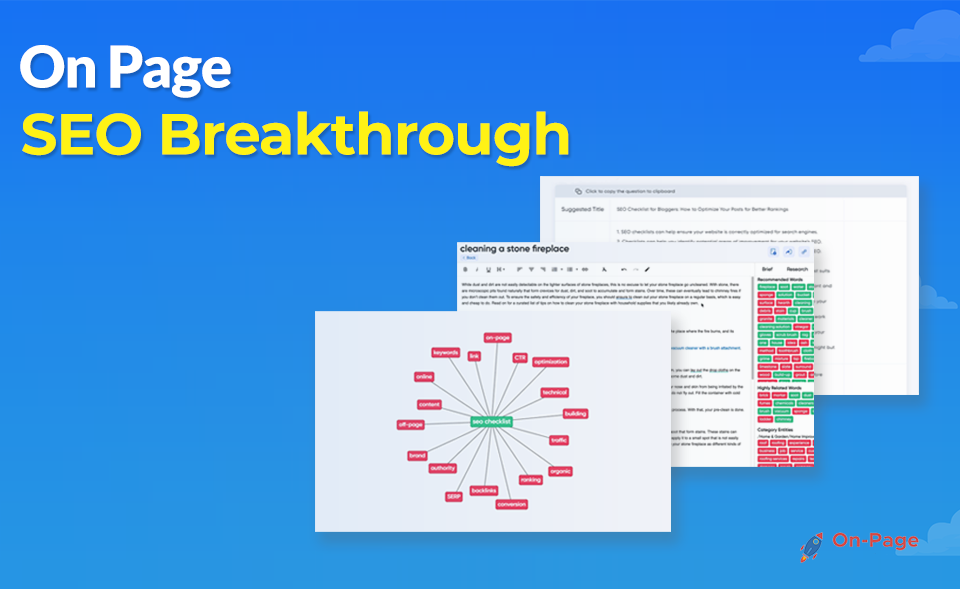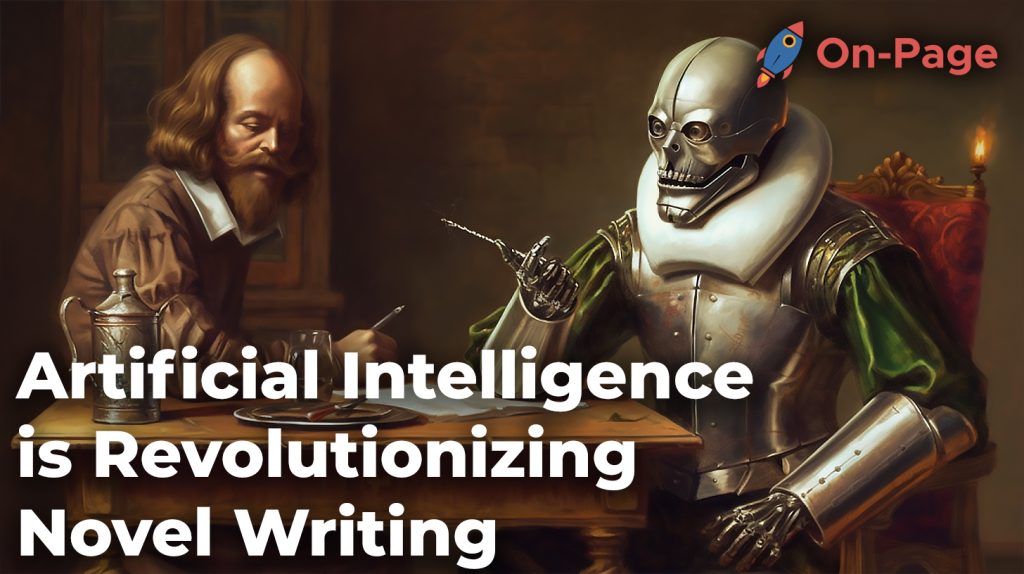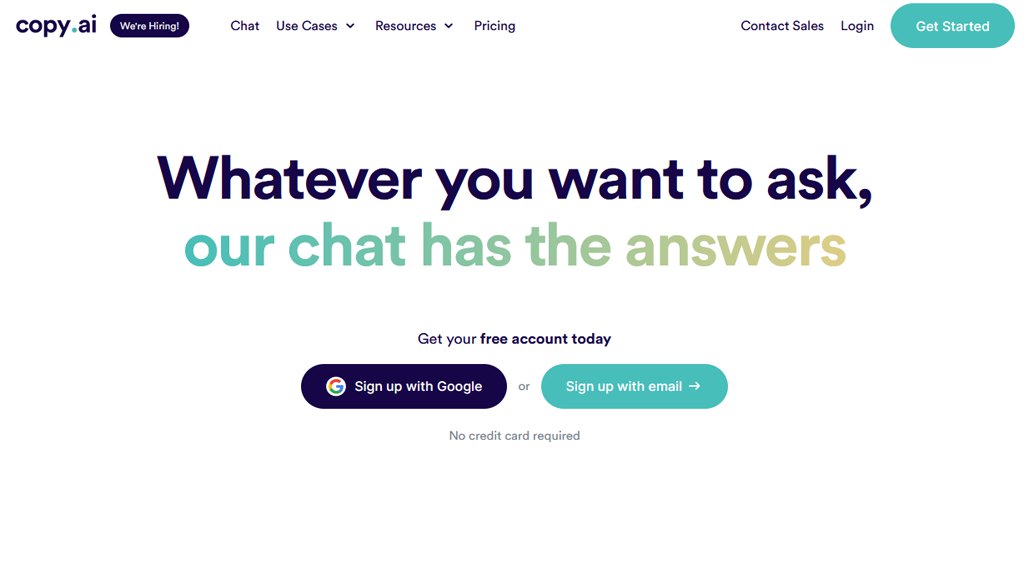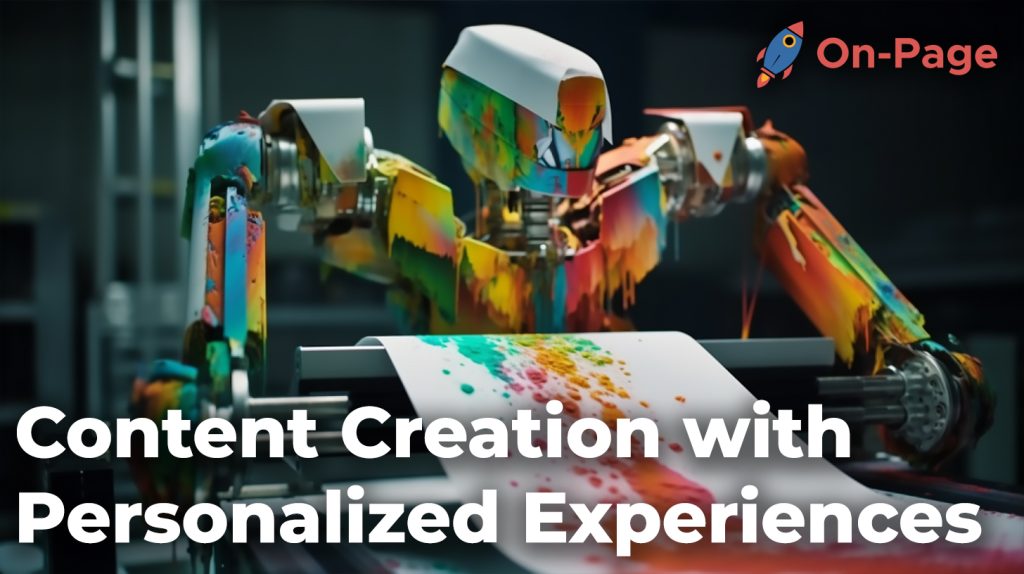
Picture this: You’re sipping your morning coffee, scrolling through your daily news feed, and suddenly, you stumble upon an article that speaks directly to you. It addresses your interests, mirrors your thoughts, and leaves you feeling like the author wrote it just for you. What if I told you that this personalized reading experience wasn’t crafted by a human writer, but by artificial intelligence? Dive into the world of AI-driven content creation with On-Page.ai that’s revolutionizing the digital landscape while delivering tailored experiences straight to your fingertips.
AI can use a variety of techniques, such as natural language processing and machine learning algorithms, to analyze massive amounts of data about website visitors. This data might include browsing history, behavior patterns, preferences, and other factors. Based on this analysis, AI can then deliver highly personalized content that appeals to each individual user’s unique interests and needs. AI can also optimize the timing and delivery of this content for maximum impact. This technology enables companies to create effective, relevant content at scale, which can result in higher engagement rates, increased revenue, and improved customer satisfaction.
AI-Driven Content Personalization

Artificial Intelligence (AI) has been increasingly used in content personalization to create an individualized experience for every site visitor. In the world of modern marketing, where consumers expect personalized experiences, AI is enabling marketers to provide tailored content for each individual user. Through AI-driven content personalization like On-Page.ai Content Editor, marketers can deliver custom-made experiences that add value to the user’s journey and increase the chances of conversion.
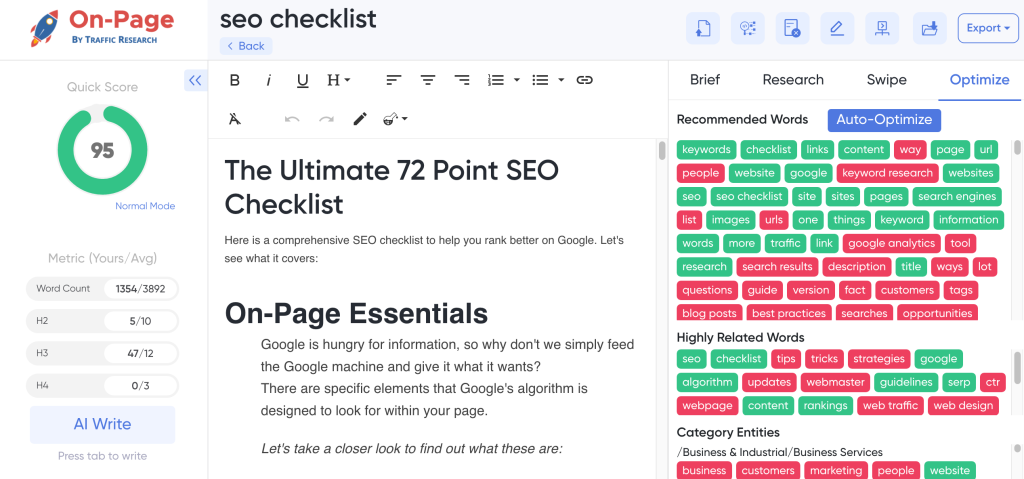
For instance, suppose you are shopping online for a pair of running shoes. When you land on the website, you receive a personalized recommendation based on your browsing history and past purchases. You can see products picked just for you, and their features specifically designed to match your interests. Moreover, when browsing through different products, reviews from other users with similar preferences pop up automatically. This kind of experience builds trust with potential customers since they can find exactly what they need in just a few clicks.
- Using AI-driven content personalization has several advantages that explain why many companies employ these techniques. Firstly, it offers a way to reduce bounce rates significantly. Since customers are more likely to stay longer on a site that caters to their needs and interests, personalizing web content results in lower bounce rates and increased engagement time.
- Secondly, AI-driven content personalization provides metrics-based insights about customer preferences. By matching consumer data like their location, device type or search history with structured data obtained through automated algorithms such as machine learning and neural networks, businesses can serve customers more accurately and efficiently than ever before. Monitoring visitors’ behaviour also allows marketers to adapt quickly to changing market trends.
There may be concerns over privacy when using such advanced technologies; however, there are ways around it through proactive consent. For example, some websites explicitly ask the user if they want personalized recommendations in exchange for a free subscription or discount coupon. The data gathered is only used for the purpose of serving more relevant content to users, and businesses commit to protecting the data from unauthorized use.
Utilizing Data for Personalized Experiences
Personalizing content through AI-driven algorithms requires a vast amount of data. These are typically structured into user attributes such as demographics, location, device type or search history, coupled with behavioural data such as clickstream analysis and social media activity. Leveraging this wealth of data allows companies to tailor their marketing strategies down to an individual level.
For instance, let’s say you’re promoting your coffee shop on Instagram by targeting young adults interested in organic produce. Using machine learning algorithms that analyze your followers’ behaviour and interests, you can target specific sets of users who engage with posts about organic food daily. On top of that, you can even automate replies to DMs based on the questions that people ask frequently.
The beauty of using AI-based solutions like On-Page.ai is that they are designed to process huge amounts of data quickly and accurately; so not only can they optimize your day-to-day tasks but also provide comprehensive recommendations based on past performance success. Personalization strategies can be deployed across various touchpoints like emails campaigns where dynamic templates can update based on user attributes and previous actions taken.
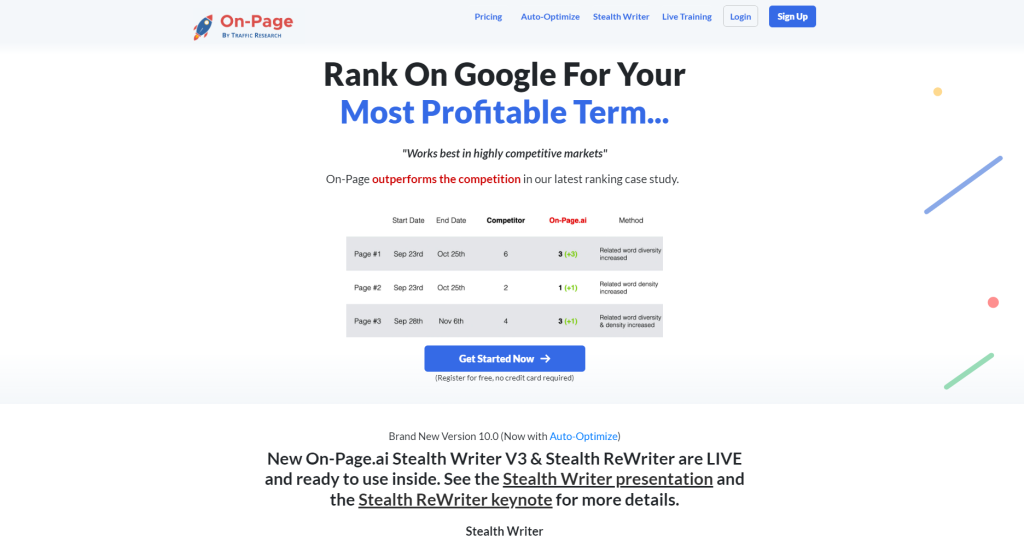
One major issue associated with obtaining consumer data is GDPR compliance violations. With regulations becoming stricter than ever before regarding user privacy protection, collecting customer details without their permission can be a huge setback for marketing strategies. Hence, companies should ensure that consent is obtained explicitly, and data protection is the top priority.
Your website’s visitor data can be thought of as the tree trunk, with structured and unstructured data branching out like leaves. Proper segmentation and grouping based on attributes like website browsing behaviour or email campaign engagement are the key to generating insights that drive results. These insights will help you understand what works best for your users, what they want precisely and what will draw their attention most effectively.
Utilizing data for personalized experiences is just one of the ways that AI is transforming content creation. Another way is through transforming the traditional content formats like dynamic stories and newsfeeds.
Content Formats Transformed by AI
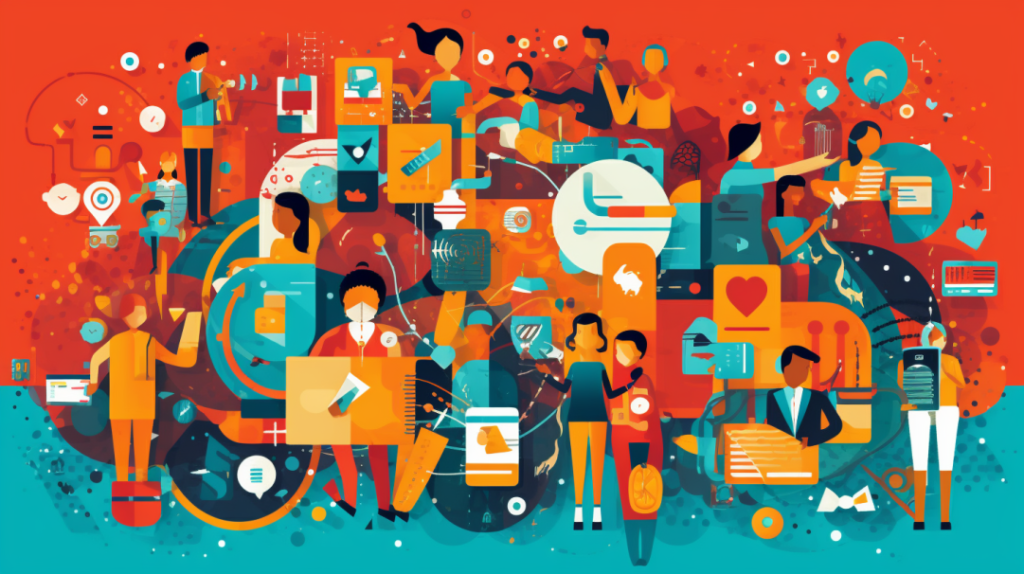
The development of AI technology has greatly influenced the way content is created and presented. A few years ago, producing content took a lot of time and effort. Writers had to come up with ideas, write drafts, revise them, perform edits, and finally publish a polished article. Today, however, such monotonous tasks can be automated with the help of AI tools. Try On-Page.ai’s Stealth Writer to help you create excellent, personalized content.
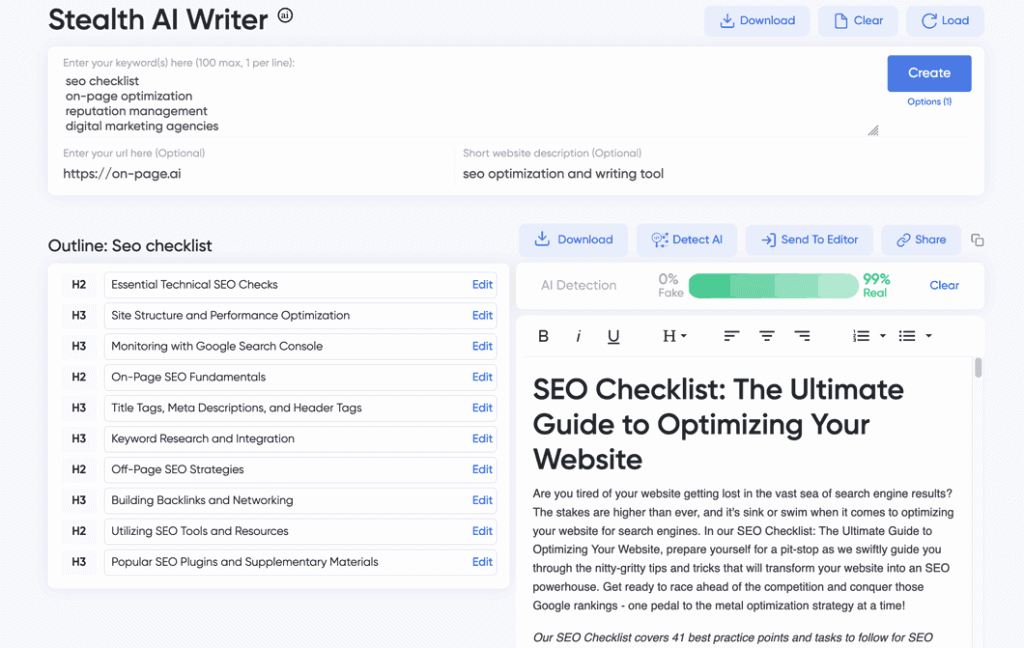
One way AI is transforming content is through dynamic website page formats. Dynamic web pages are designed to adapt to different screen sizes and device types that users access the page from. To accomplish this dynamic site design, machine learning algorithms analyze user behavior patterns and gather contextual information based on the user’s previous online activities.
For instance, an e-commerce store can use AI to personalize web pages for individual customers based on their browsing history and purchase behavior. The page structure could display relevant products or recommend previously purchased items that match a customer’s interests. By refining the user experience according to preferences and purchasing history, the customer feels valued and understood.
Another format transformed by AI is video content creation. Advancements in machine learning have improved the efficiency of video production as well as increased the quality of visuals and audio. With these new algorithms, it’s possible to generate large quantities of videos tailored for specific audiences quickly.
There are now AI platforms that can take articles or data sets and turn them into compelling video presentations automatically within seconds reducing production cost overheads significantly. Additionally, marketers can create personalized videos that resonate better with viewers because the script is generated from insights gathered on audience attributes.
As AI gains traction in content creation strategy due to its likability to forecast demand in consumer taste patterns and other historic performance factors across social media platforms, another medium where we see transformative application of AI is in audio content creation.
Like video or text-based content generation using NLP and other AI-driven algorithms, newer software, like Amazon Polly, DeepZen, or other online platforms can now seamlessly convert text-based articles to audio format with natural-sounding voices. For the first time, audio is being personalized at scale to offer a unique listening experience that aligns with an individual’s taste preferences.
Now let’s talk about dynamic stories and newsfeeds.
Dynamic Stories and Newsfeeds
One of the greatest advantages of AI-powered content is the ability to generate dynamic stories that evolve over time. Social media platforms have incorporated this functionality through their story formats. Expanding into many social networks aside from Snapchat and Instagram, Facebook‘s format is no different with Messenger Rooms.
Users are presented with interactive content tailored to their interests reflecting real-time activity from those closest in their social network. Data supplied by user interaction patterns reveal more about user choices allowing these channels’ machine learning algorithms to instantly adapt. Viewers rarely consume the same personalized content twice unless it has skyrocketed in popularity or relevance.
The potential downside of this dynamic story technique is that creators may be motivated to produce less high-quality content which provides value long-term but instead prioritize quick, entertaining stories that are easy for users to engage with in short sessions.
However, this doesn’t detract from how well received this tactic has proven to be. Instagram’s introduction of ‘Reels’ was designed to compete directly with Tiktok by offering a very similar product but refining it based on the data insights gathered from its sister app. The reuse of popular videos allows easier participation and helps spread awareness of video trends like dances or specific sounds making them widespread overnight.
This capability offers almost endless possibilities for publishers as more than ever before brands have been empowered to create personalized interactive and captivating experiences automatically targeted at users’ interests leading to better engagement and trust when done effectively.
AI Techniques for Content Creation
One of the significant breakthroughs in the content creation process is the use of Artificial Intelligence (AI), which has simplified the entire process. The integration of AI into content creation ensures that there is a steady flow of top-quality content, which has transformed how content marketers approach their strategies. There are various AI techniques employed in content creation, such as Natural Language Processing (NLP) and image recognition, which have enhanced numerous aspects related to content marketing.

One practical application of AI techniques in content creation is generating text-based articles. It is possible to create entire, well-written articles using an AI-based article generator like Stealth AI Writer by selecting the right settings and providing it with a specific context or keyword. This saves countless hours that would have otherwise been spent brainstorming ideas and writing lengthy pieces from scratch. With AI tools like On-Page.ai’s Stealth Writer, users can now create content faster while still maintaining relevance and quality.
Another key benefit of using AI techniques in content creation is ensuring consistency in branding. AI-powered language analysis helps maintain a cohesive style across all publications while optimizing for SEO at scale. With natural language generation models, important information such as brand messaging, product descriptions, and services can be presented in a consistent manner by machines.
However, while AI-generated content seems to be an excellent solution for creating valuable content while saving time, some experts view it as being less authentic or not human-centered in nature since the machine does not sync with an author’s intent or emotions when crafting a piece. Additionally, there are concerns about plagiarism; ideally, copywriters should check for uniqueness before publishing anything to avoid falling foul of copyright infringement.
Think of it this way – just like artists using computer software tools for drawing and painting have artistic freedom to express their personal creativity and ensure quality output; writers who use AI instruments like Stealth Writer have the same freedom to produce well-crafted articles while balancing with SEO optimization, consistency in branding, and saving time.
The next application of AI techniques in content marketing is automated filtering and recommendation algorithms.
Automated Filtering and Recommendation Algorithms
Automated filtering and recommendation algorithms are AI-based applications like On-Page.ai used to curate diverse content. The technology creates personalized content for website users based on their digital footprint, such that recommending related content becomes a hassle-free and accurate process. It enables companies to deliver content users need without manually reviewing petabytes of text data.
For example, news websites like CNN and BBC use automated filtering algorithms to determine which news goes well with particular audience segments. By tracking user behavior patterns such as the search query or clicks made on a page, these sites can suggest relevant news reports accordingly.
In addition to offering great personalization solutions for customers, automated filtering and recommendation algorithms streamline content discovery. There is less time wasted searching for information, making it easier for users to find what they need more effectively. This enhances user engagement by attracting more visitors, lowering the bounce rate and increasing the probability of repeat visits.
Critics argue that the over-reliance on recommendation engines often drives people into a bubble of similar ideas and limiting their exposure to new experiences. However, researchers from H2O.ai believe that exposing people to novelty at scale (insights not currently known) could be one solution.
Think of a librarian whose task is sorting out books while also ensuring each reader leaves with something they enjoy. With endless shelves, she might offer only a few books matching readers’ preferences unless she employs an algorithm that filters out a specific genre matching certain keywords within readers’ profiles.
Advantages of AI in Content Personalization

The use of AI in content personalization offers several advantages over traditional methods, which makes it the go-to choice for many marketers today. Let’s dive into some of these benefits:
First and foremost, personalized content leads to higher engagement rates. When users are served content that is relevant to their interests and preferences, they are more likely to click, read, share, and comment on it. High engagement rates signal to search engines that your content is valuable and trustworthy, which can improve your SEO rankings.
- For instance, companies like Netflix and Amazon use AI algorithms to recommend movies and products to their users based on their past behavior. As a result, they have seen significant improvements in customer retention rates and revenue growth.
- Furthermore, AI-driven content personalization helps you deliver more value to your customers by addressing their individual needs and pain points. By collecting data on your customers’ age, gender, location, job title, industry, company size, budget, pain points, site engagement, email engagement, app downloads, past purchases, and past content consumed, you can tailor your content accordingly.
- For example, if you run a B2B SaaS company that sells project management software to small businesses within the tech industry, you may want to create personalized blog posts that address common challenges faced by your target audience – such as how to manage remote teams effectively or how to prioritize tasks when you are short on time.
- Some may argue that personalizing content at such a granular level is time-consuming and expensive. However, with advanced AI tools like On-Page.ai’s Stealth Writer and Stealth ReWriter that uses natural language processing (NLP) technology and machine learning algorithms to generate high-quality content quickly and inexpensively; marketers can produce effective personalized content without having to spend a lot of time or money.
- Think of AI as your personal assistant, who is responsible for gathering information about your customers and using that information to create personalized content. Just as you would delegate certain tasks to your assistant because it frees up your time to focus on more important matters, delegating the task of content personalization to an AI-powered tool can free up your team’s time while also increasing the effectiveness of your marketing efforts.
Overall, incorporating AI into content personalization offers several advantages that marketers simply cannot ignore. If you’re looking to improve your engagement rates, provide more value to your customers, and streamline your content creation process, then investing in an AI-powered tool like On-Page.ai is a wise choice. With its advanced features such as On-Page Scans, Stealth Writer, Stealth ReWriter, and automated recommendation algorithms. Sign up with On-Page.ai that has proven itself to be a superior alternative over other SEO tools in the market.

Answers to Commonly Asked Questions
How accurate is AI in predicting user behavior for personalization purposes?
AI has made significant strides in accurately predicting user behavior for personalization purposes. According to a study by eMarketer, 53% of marketers believe that AI is crucial to personalized marketing. This is due to the fact that AI models can analyze data from various sources, including past user interactions and social media activity, to create accurate predictions of future behavior.
In addition, AI-powered recommendation algorithms have shown remarkable success in personalizing user experiences across industries. Amazon’s product recommendation system is a prime example of AI’s ability to predict user behavior with an accuracy rate of up to 60%.
However, it is important to acknowledge that AI is not infallible and there are limitations to its accuracy. For example, AI may struggle with predicting sudden changes in user behavior or preferences. Additionally, ethical concerns regarding data privacy must be addressed when leveraging user data for personalization purposes.
Overall, while there may be room for improvement, the advancements in AI technology have made significant progress towards more accurate predictions of user behavior for personalization purposes.
How do companies use AI to collect and analyze data for personalized content creation?
Companies use AI to collect and analyze data for personalized content creation by implementing various techniques such as natural language processing, machine learning, and big data analysis. These technologies allow companies to track users’ behavior, preferences, and interests in real-time, enabling them to tailor content that resonates with their target audience.
According to a recent study conducted by Adobe, businesses that personalize their content see an average increase of 20% in sales compared to those who don’t. AI-powered personalization is also becoming increasingly popular and effective in the e-commerce industry where brands are leveraging AI algorithms to suggest products based on users’ browsing history, search queries, and purchase patterns.
Another key benefit of using AI for personalized content creation is scalability. With the rise of digital platforms, businesses need to produce a vast amount of content quickly and efficiently. AI tools like On-Page.ai Auto-Optimize help automate mundane tasks such as content creation, optimization, distribution, and analytics.
In conclusion, companies use AI to collect and analyze data for personalized content creation due to its ability to provide accurate insights about consumer behavior and preferences at scale. The result is a more efficient content creation process that produces high-quality personalized experiences for users.
What ethical considerations should be taken into account when using AI for personalized content creation?
As AI continues to transform content creation, it is crucial to consider the ethical implications of personalized experiences. One potential concern is the risk of algorithmic bias, where AI may perpetuate existing inequalities and stereotypes. For instance, if a machine learning model is trained on biased data, the generated content may unfairly favor certain demographics or portray them in harmful ways.
Another ethical consideration is the privacy of user data. To deliver personalized experiences, AI systems require access to sensitive information such as browsing history and location data. It is imperative that companies handling this data abide by transparency and privacy regulations like GDPR.
Moreover, some argue that AI-generated content could potentially replace human creativity and diminish the value of authentic storytelling. As more content becomes computer generated, we must ensure that technology never replaces the human touch that makes storytelling so engaging in the first place.
Addressing these ethical considerations will be crucial for ensuring that AI-powered content generation creates positive social change. In fact, 79% of consumers believe that businesses should prioritize social responsibility and ethics (source: Edelman Trust Barometer 2022). By being transparent with users about how their data is used and actively mitigating algorithmic biases, companies can ensure that AI turns into a force for good in personalizing content experiences.
What types of AI technology are commonly used to create personalized content?
Artificial Intelligence (AI) technology has revolutionized the way content is created, consumed, and personalized. In order to create personalized content for users, there are various AI technologies that are commonly used in the content creation industry. Some of the most common types of AI technology used include Natural Language Processing (NLP), Machine Learning (ML), and Neural Networks.
NLP is an AI technique that helps computers understand human language. It enables machines to read, interpret, and analyze human language, allowing them to generate personalized content tailored to individual user needs. According to a market research report by Grand View Research, Inc., the global NLP market size is expected to reach USD 31.84 billion by 2025.
Machine learning is another popular AI technology used in content creation to personalize user experiences by analyzing data patterns and predicting future preferences. According to a survey by Statista, 47% of companies have implemented machine learning in their operations in 2021.
Lastly, Neural Networks are designed to replicate how the human brain works by allowing machines to learn from experience and adapt their behavior accordingly. It’s especially useful for image and audio recognition as well as prediction modeling. The growth in demand for neural networks is expected at a CAGR of 21% between 2021 to 2026 according to a recent market report from marketsandmarkets.com
In conclusion, it’s evident that AI technologies like NLP, ML, and Neural Networks have revolutionized content creation with personalized experiences becoming achievable at an unprecedented speed and scale thanks to AI advancements. These developments underpin the current trend for increased automation across all industries not just digital media with projections showing continued growth in this area over the coming years.
Does AI replace the need for human writers in creating personalized content?
Despite the advancements in AI, human writers are still crucial in creating personalized content. While AI can generate content at scale quickly and efficiently, it lacks the creativity, empathy, and emotional intelligence that makes content compelling and engaging for humans.
According to a report by Deloitte, “AI will likely augment rather than replace human creativity,” which means that AI like On-Page.ai will help writers produce high-quality content faster by automating some of the tedious tasks like research and data analysis. Additionally, AI-powered tools like Grammarly and Hemingway Editor can help writers enhance their grammar and writing style.
However, as per a study conducted by The Creative Group, 56% of marketing and advertising executives believe that creative skills are the most challenging abilities to find in job candidates, highlighting the need for exceptional human writers in the industry.
Moreover, personalized content requires a deep understanding of the target audience’s needs and desires, something that only humans can provide. A study conducted by Evergage found that 72% of customers engage with personalized messaging compared to generic messaging.
In conclusion, while AI can assist in producing content at scale quickly and efficiently, human writers remain essential in creating personalized experiences for audiences.

